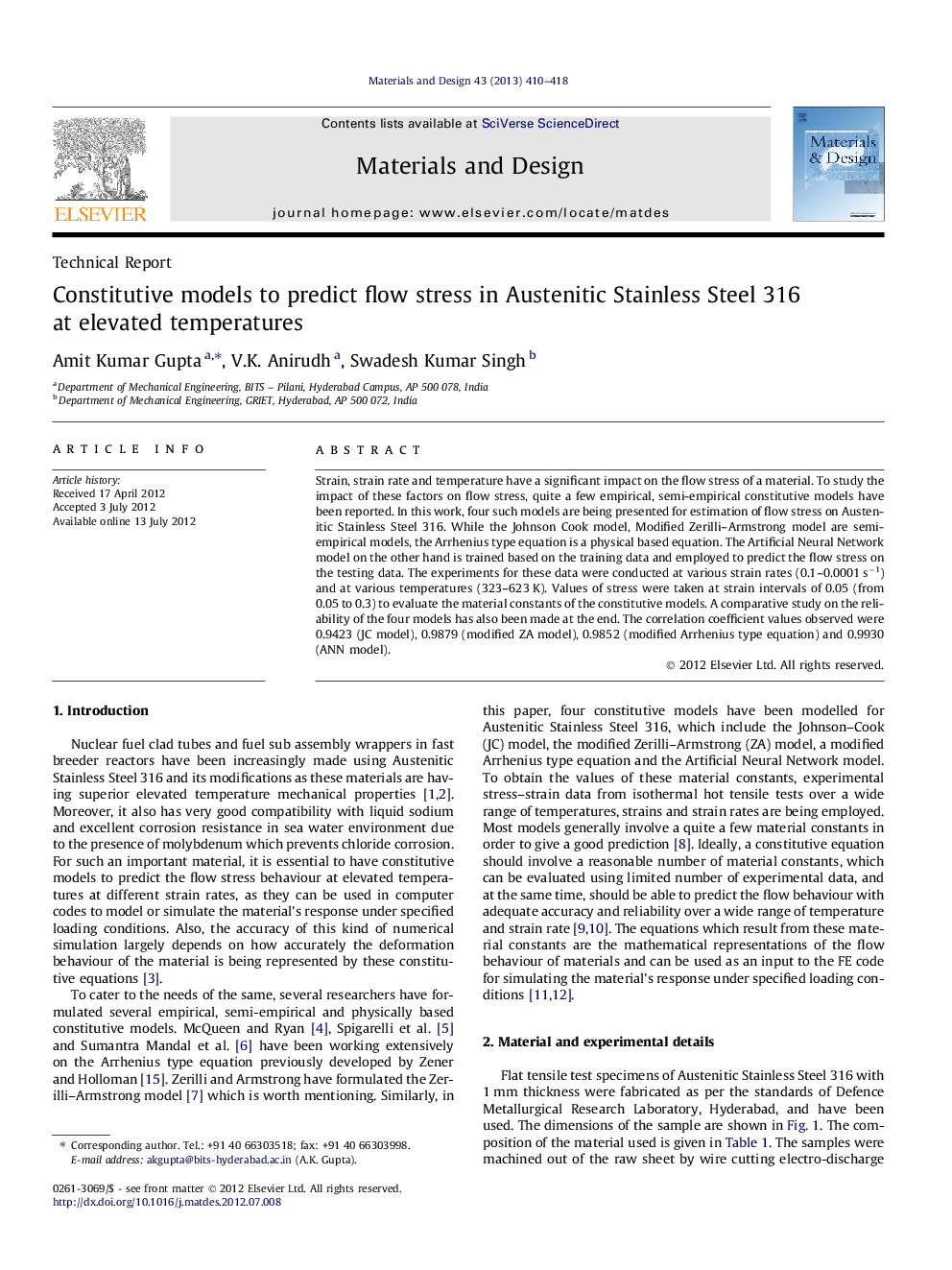| Article ID | Journal | Published Year | Pages | File Type |
|---|---|---|---|---|
| 830426 | Materials & Design (1980-2015) | 2013 | 9 Pages |
Strain, strain rate and temperature have a significant impact on the flow stress of a material. To study the impact of these factors on flow stress, quite a few empirical, semi-empirical constitutive models have been reported. In this work, four such models are being presented for estimation of flow stress on Austenitic Stainless Steel 316. While the Johnson Cook model, Modified Zerilli–Armstrong model are semi-empirical models, the Arrhenius type equation is a physical based equation. The Artificial Neural Network model on the other hand is trained based on the training data and employed to predict the flow stress on the testing data. The experiments for these data were conducted at various strain rates (0.1–0.0001 s−1) and at various temperatures (323–623 K). Values of stress were taken at strain intervals of 0.05 (from 0.05 to 0.3) to evaluate the material constants of the constitutive models. A comparative study on the reliability of the four models has also been made at the end. The correlation coefficient values observed were 0.9423 (JC model), 0.9879 (modified ZA model), 0.9852 (modified Arrhenius type equation) and 0.9930 (ANN model).
► Tensile testing of Austenitic Stainless Steel 316 at elevated temperatures. ► Prediction of flow stress. ► Constitutive modelling using JC, modified ZA, Arrhenius type, and ANN models.
